- Back to Home »
- African Well Fund , Hipstamatic , Hipstamatic Travels »
- Project Day in Benin
*opinions and observations expressed here are mine and mine only. African Well Fund will be posting a recap of the same experience in the upcoming days*
The day had come that was the impetus for this trip to West Africa. We were picked up before sunrise to make the long drive towards the north central part of Benin to visit the four schools that the WASH (Water and Sanitation Hygiene) component we had funded had taken place in.
Below is a personal recollection of the day:

I had no idea what to expect - I had seen photos of African Well Fund's previous trips to schools and project report photos from Africare, but as i had already learned it's a different thing to experience it. I was very conscious of my fear and excitement about whatever lay ahead.
The trip went through "urban" areas as well as heavily vegetated areas. The urban areas were much like we had already experienced - crazy traffic between autos and motocycles, people selling a myriad of goods, dirt, exhuast mixing with the heat.
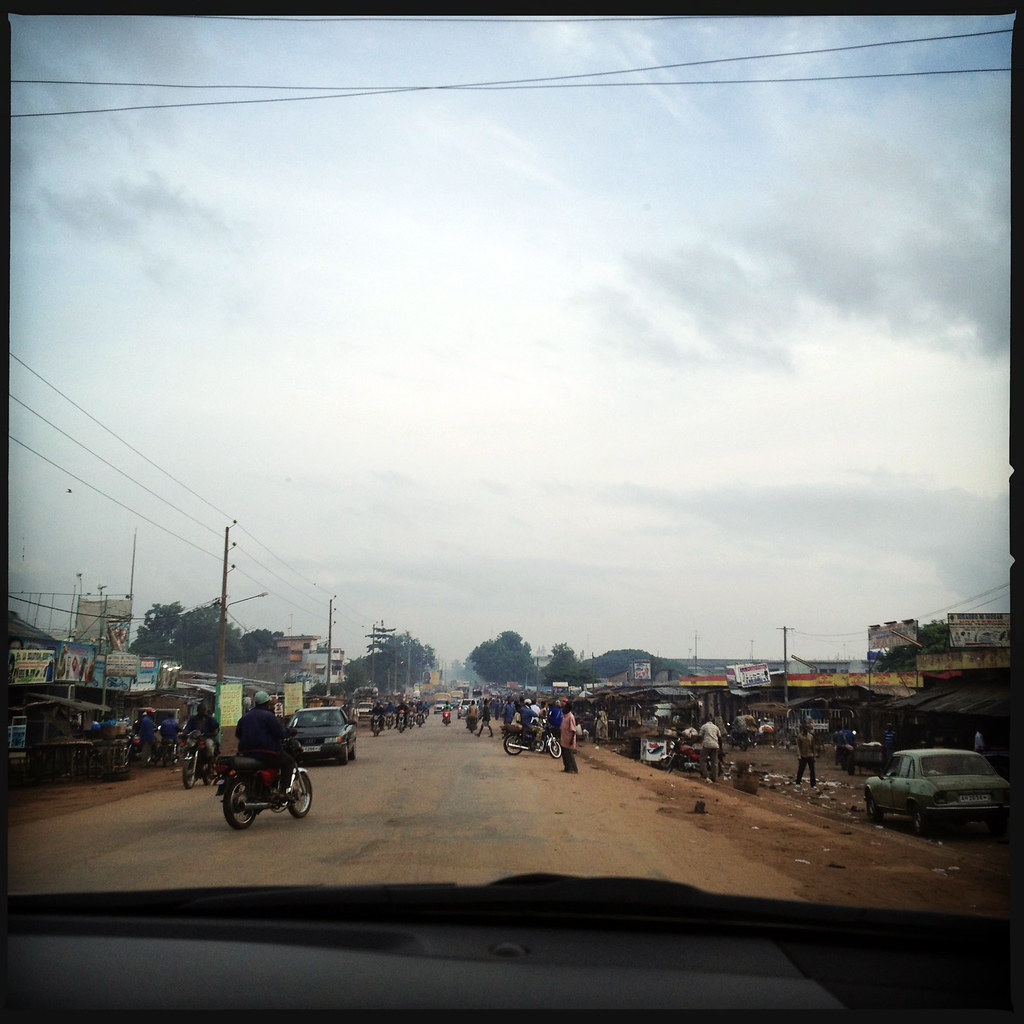
One of the cities we drove through is Porto Novo, which is the capital of Benin. It was a strange mix of 19th century Brazillian colonial looking buildings and makeshift dwellings. Everything but the mosques and churches seem to be in disrepair or half built. We were told numerous construction projects start but never get finished. And when things start falling apart there really isnt money to hire people to repair.
As we made our way out of the city and toward Bohicon, where the schools are located, it became much more agricultural, although people were walking along the side of the highway as well as in the fields harvesting fruits and vegetables. Gender roles still appear to be clearly defined in the part of West Africa we were in. Men did the hunting and gathering, women cleaned, cooked and sold whatever was abundant in their village.
The roads we travelled were lined with women and their children selling fruits and vegetables, oils and peanuts. And the product was always concentrated within the same area - you'd see a dozen women all selling the same oranges or the same corn. These seemed to be the women whose families are probably the statistics we hear about - the ones living on less than a dollar a day just doing what they know to survive.
Recent statistics show that 5% of the population in this area actually has access to clean water.
FIVE PERCENT.

I felt way too guilty to take any of their photos from the car I was in, as it seemed a luxury at this point. However, this is the image I have designed in my head based on all the different things I saw as well as things I've learned over the years on the Internet:
The people we saw live in villages that have existed for generations and generations. Their housing is a shelter - mud huts with palm tree leafs covering. Dirt floors that are swept with pieces of bush. There is either a well for water that they and/or their children fill buckets and Geri cans from and carry it back to their homes or, as is the case for 95% of this population, no source of water nearby. In this case they walk with their children, sometimes up to 8 miles in a day, to find a stream or water hole where they can fill whatever it is they have and carry it home. The water they find is seldom clean, in that the same water might have also served as a toilet for wild animals as well as humans. The same water may have all sorts of bacteria, algae, and trash that is just kind of pushed aside and strained out. There are cows, goats, donkeys, chickens, dogs, ducks roaming all over the place and they use this same water. There also appears to be no sanitation system in Togo or Benin with trash piles constantly around you. In addition to having to spend hours a day fetching water the women and children face other real danger. Poisonous snakes, rape, physical violence . . . But the alternative of not having water to drink or cook with outweighs those dangers.These are the villages we try to help bring a well to. To free up all these women and children to do more empowering things with their days. Children can get an education, women have shown they can start more lucrative businesses, many lives are saved from the health benefits of not getting deathly ill from drinking and bathing in contaminated water as well as not exposing themselves to the peril that exists while looking for water.
. . . i digress and climb down from the soapbox . . .

Once we turned off of the main highway we were on a very narrow dirt road that didn't appear to have much four-wheel motor vehicle traffic. There were clusters of mud huts. Once we got near the school it opened up into a dirt campus somewhat enclosed on three sides by cement buildings. First thing i noticed was the sign on the driveway entrance announcing the project and our involvement. It was exhilarating to see!

Getting out of the cars at each school we were greeted by wide smiles and curiosity. We were brought into school buildings where groups of students joined us. At the first school, the first thing we were treated to was a very moving spiritual song and dance. By the end of it, it had erupted into a dance off of excited children! It was awesome! I wanted to join in!!!
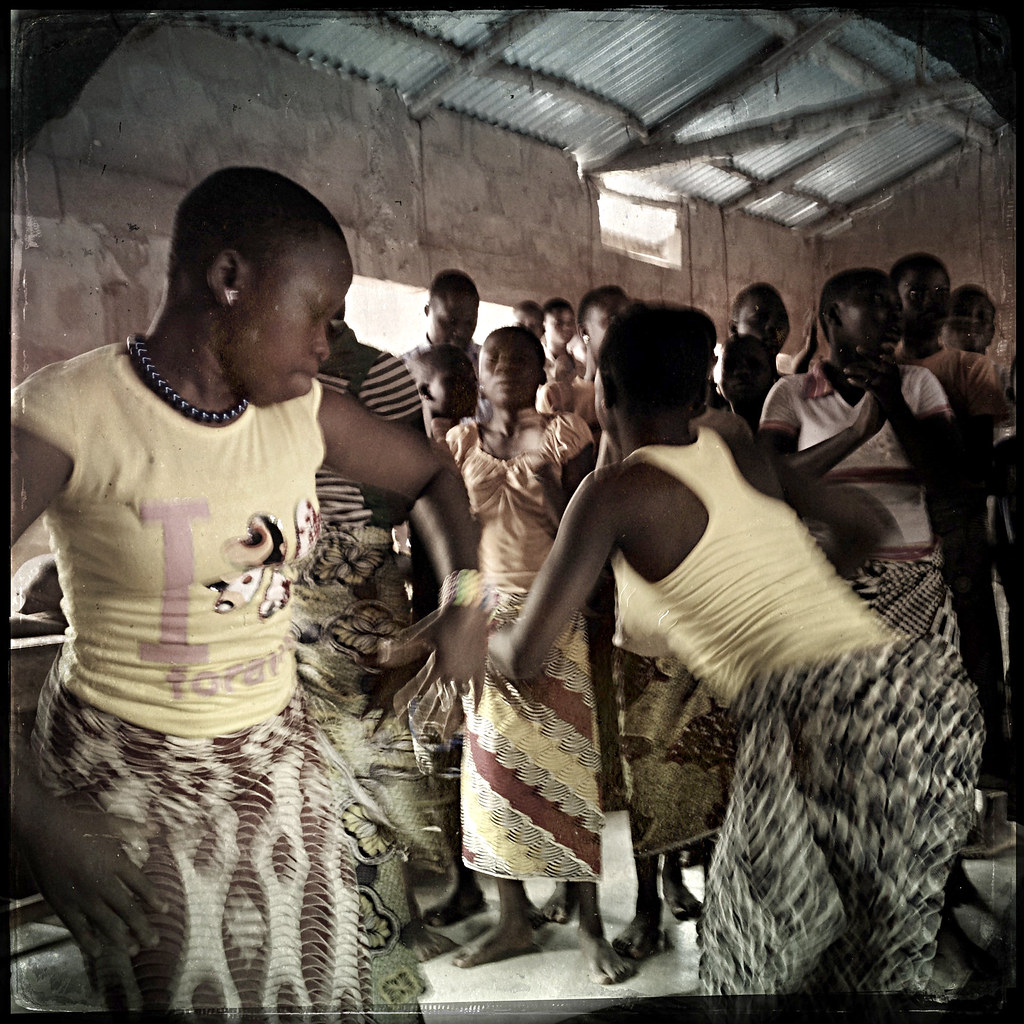
At another school we watched a group of students perform a skit for us. There was a father whose son came to him telling him he really needed to go to the bathroom and the father just told him to go out behind the house. (We saw all over Benin and Togo it's socially acceptable to urinate wherever you are and to go into the bushes to defecate. Cleaning up after? Washing hands? Not likely . . .) A minute later the young boy came back screaming in pain having been hit by a motorbike. Another variation on this scenario, we were told later, was while crouching down being bit lethally by a snake. This re-enactment was all to thank us for the much needed toilets and how it has improved their lives.
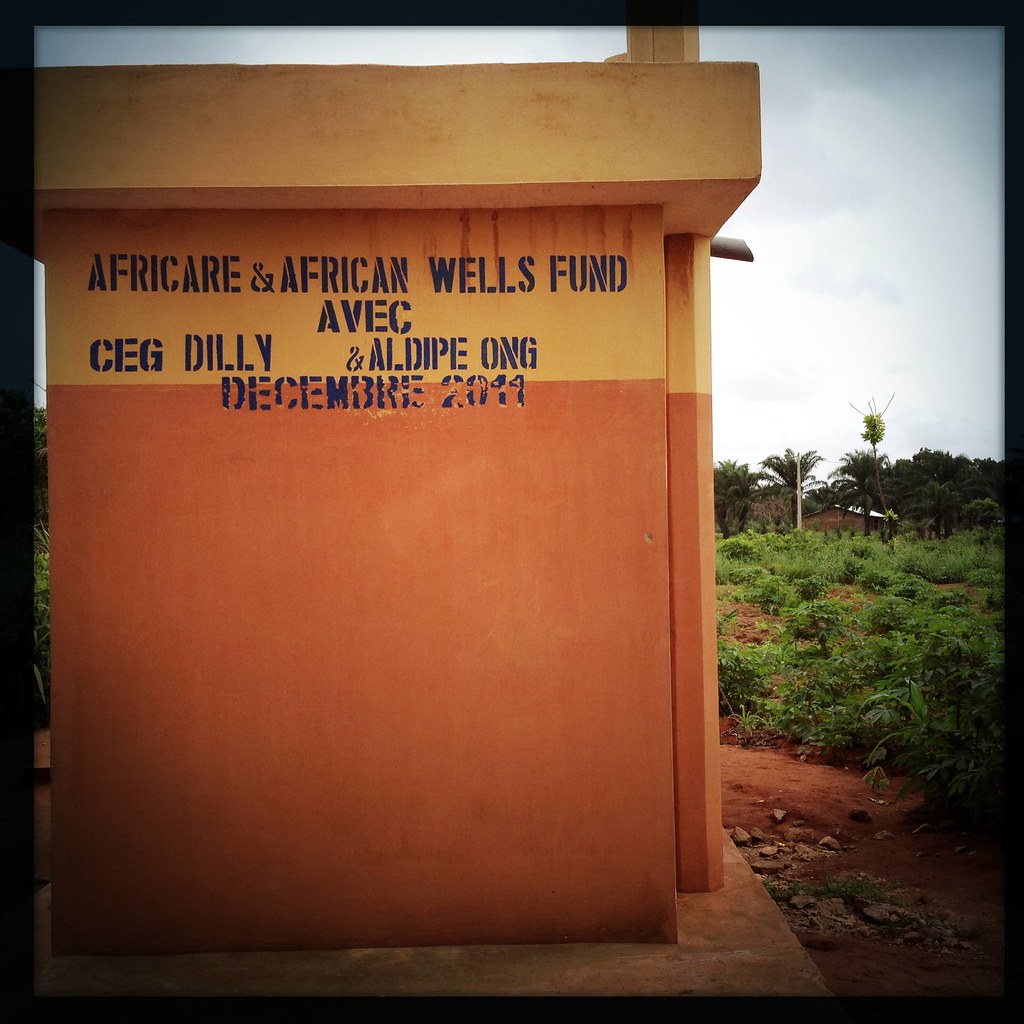
It still trips me out that something we in the USA take for granted, and don't even really think about in our day to day lives (unless you have Colitis like me), can make such a powerful change! A simple safe place to go the bathroom . . .
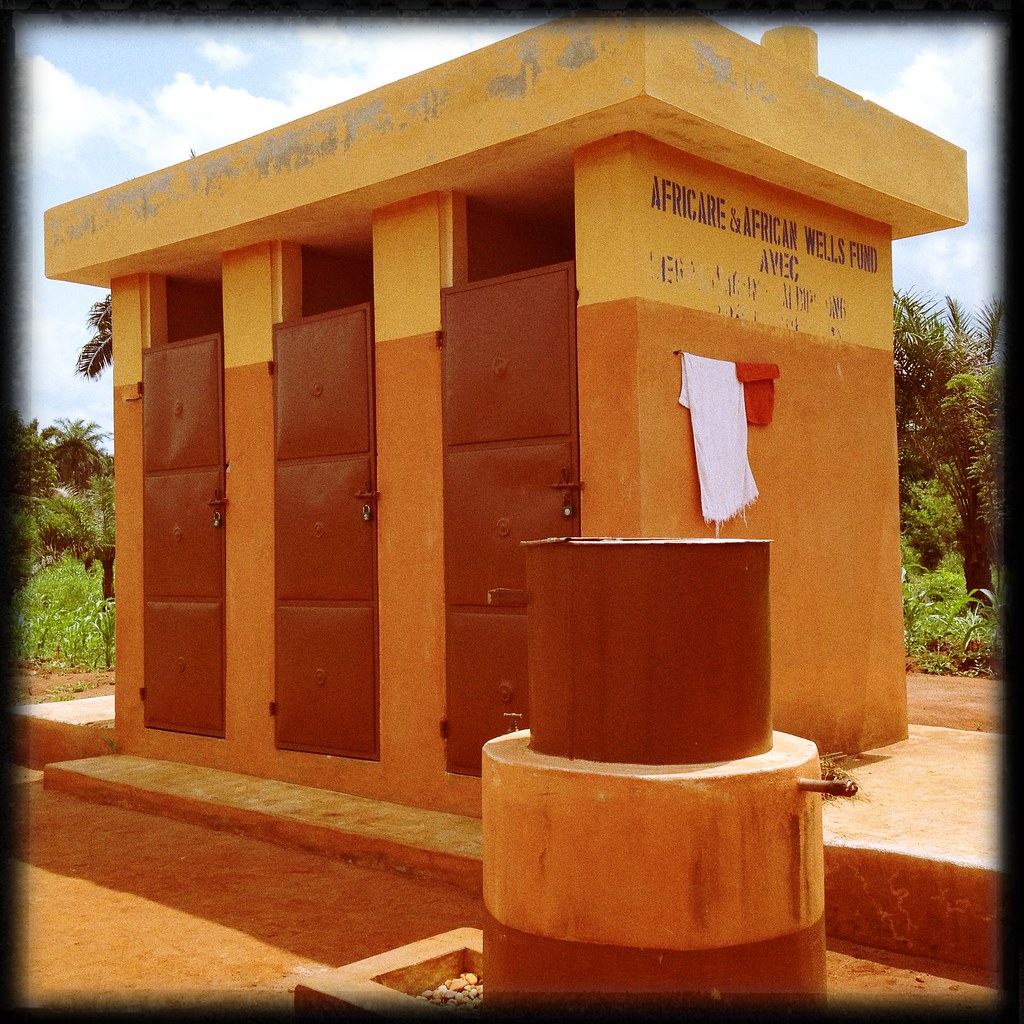
The latrines, unfortunately, have caused some negative repercussions in neighboring villages who are desperate to use them. The schools keep the stalls (usually 3) locked up so they can control the safety and integrity of them, but there were incidents reported to us of neighboring villagers trying to break the locks and even tear the doors off of them to get access. That really demonstrates the value of something we take for granted, I think.
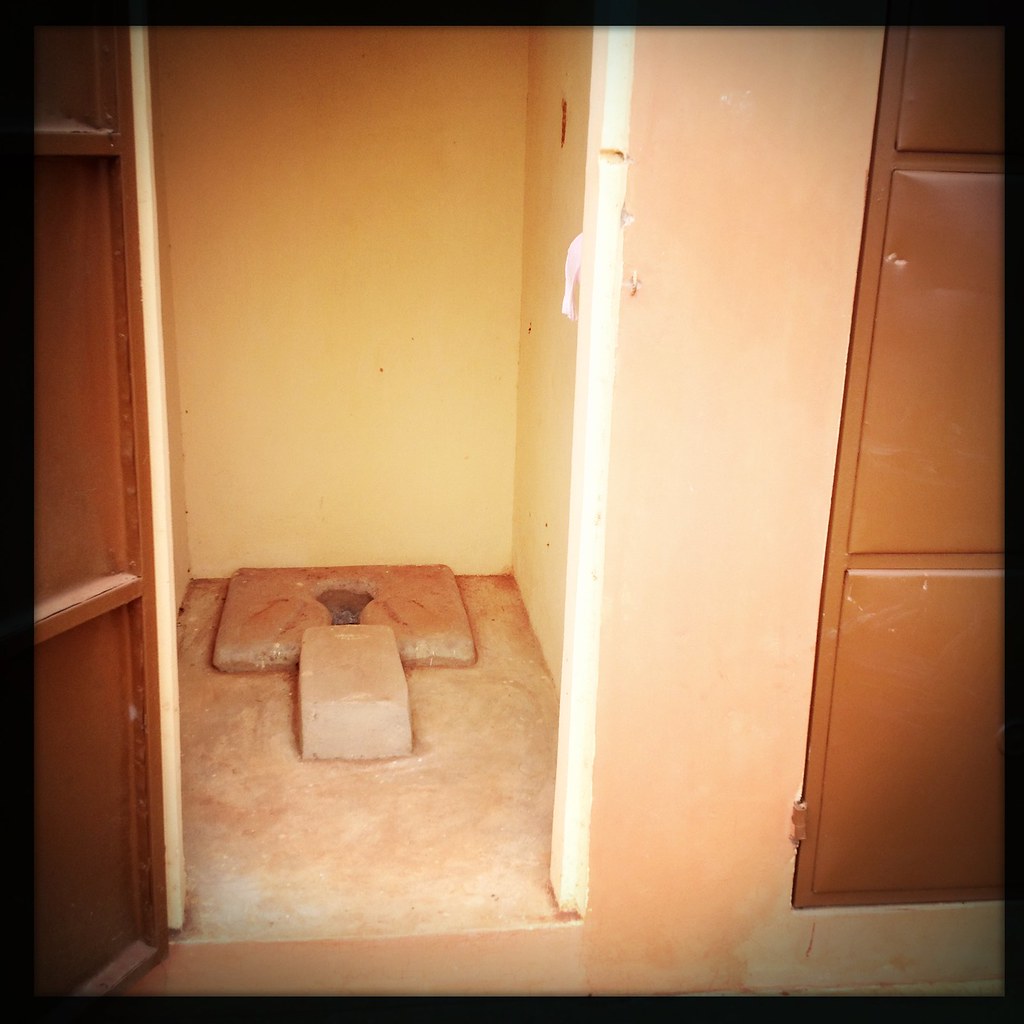
Part of the project was to educate school children on hygeine as most had never had access to a toilet before more over water to wash their hands with.
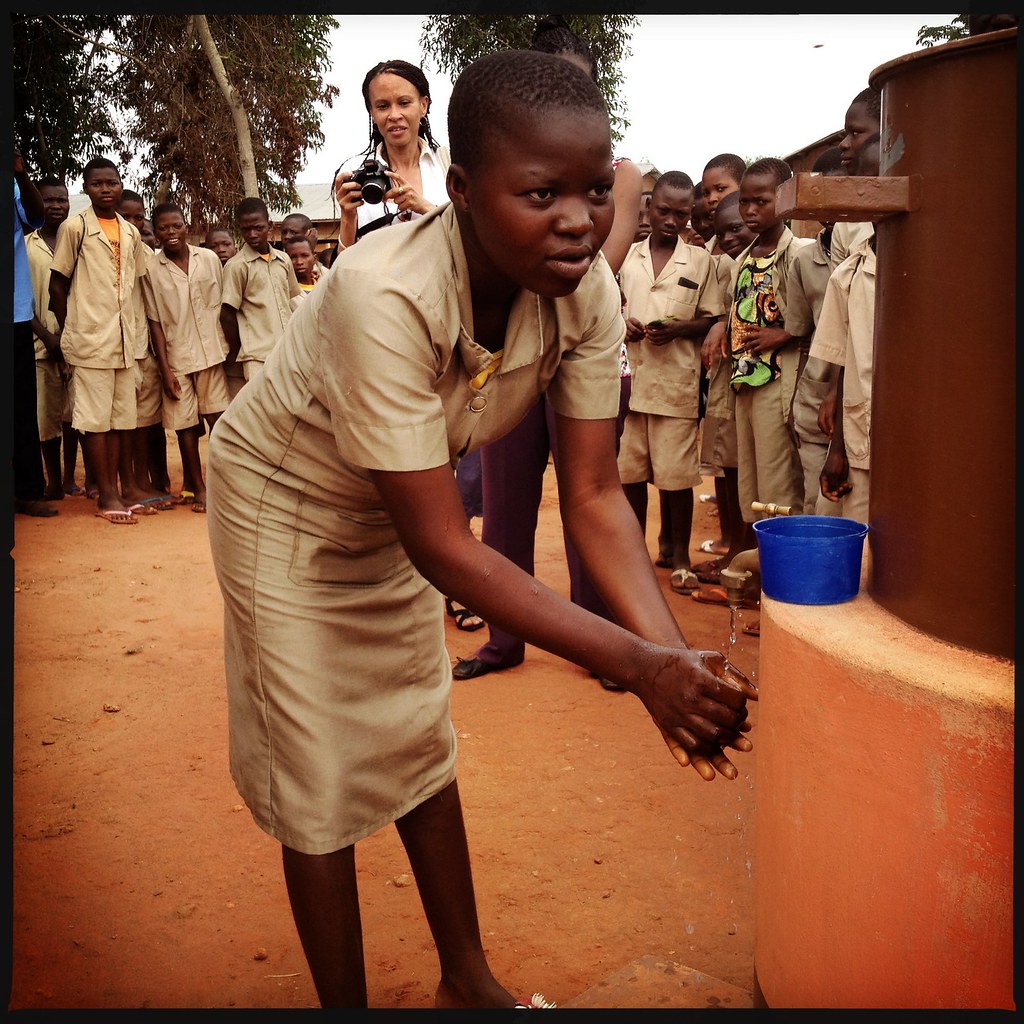
The well built at this school was also used by these four women whom were described to us as cooks. The schools don't have any sort of meal programs, and many children are there from 7am to 7pm as they live too far away to go home for a lunchbreak, so these women cook food and sell it to the children. They were very thankful for the well and water!

More photos of the beautiful children so full of life:
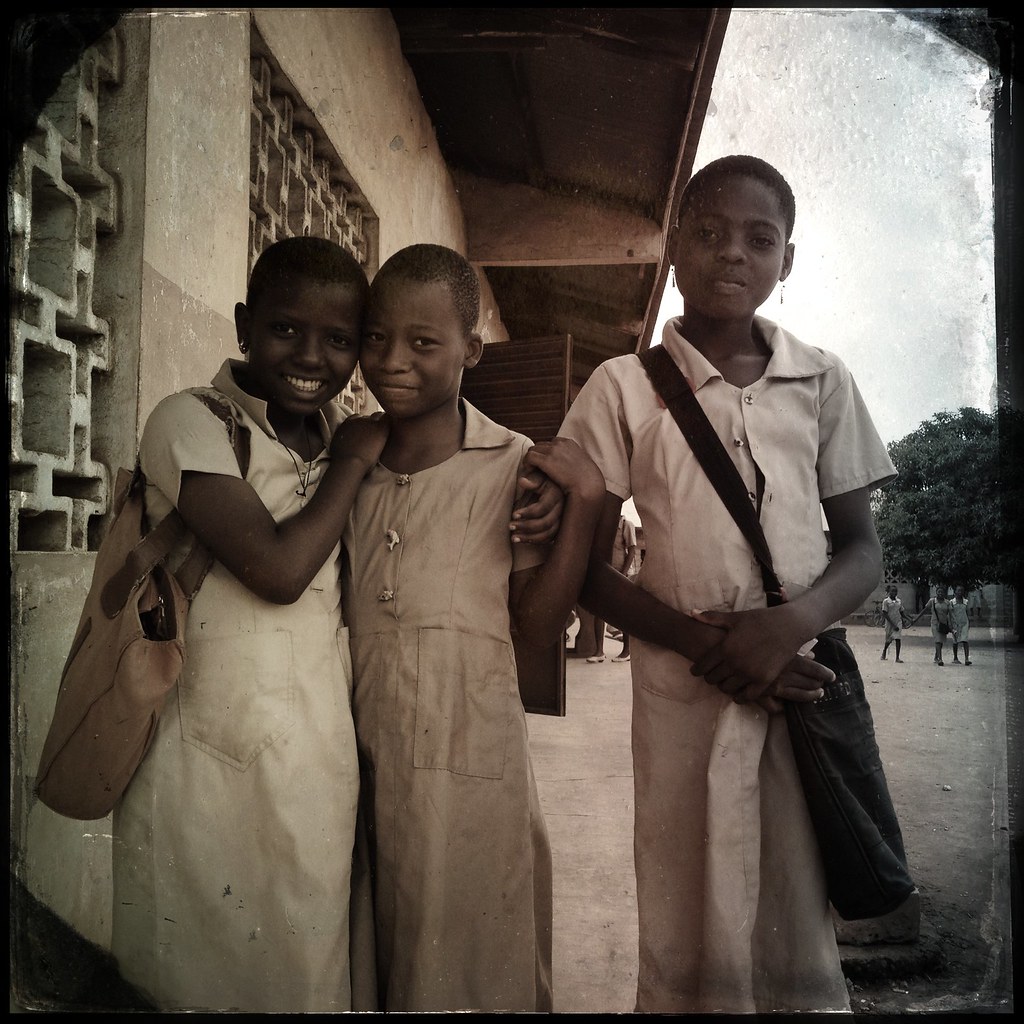

At one of the schools the head master started off by saying:
"Thank you for caring for children that are not your own."
These words have been haunting me since. There are so many ways to take that, but at it's simplest, I think it illustrates how hard life is for families in that area to just take care of their own families moreover other families. I'm not suggesting I don't believe there isn't neighborly favors being done, but there isnt much wealth to go around.
On another note that statement has just made me re-evaluate my own core values and what taught me in my life to believe in human equality and to notice those "who have" and have compassion for those "who have not" . . . Whether it be those early years in Hebrew school teaching me what a Mitzvah is, or being brought up by the most generous parents one could ask for, or having hero/role models like Adam Yauch and Bono (especially in my impressionable early 20s) . . . well, that's a whole other blog entry or conversation over wine.
So, instead let's look at one more photo of shiny faces full of hope and wisdom most of us will never attain.
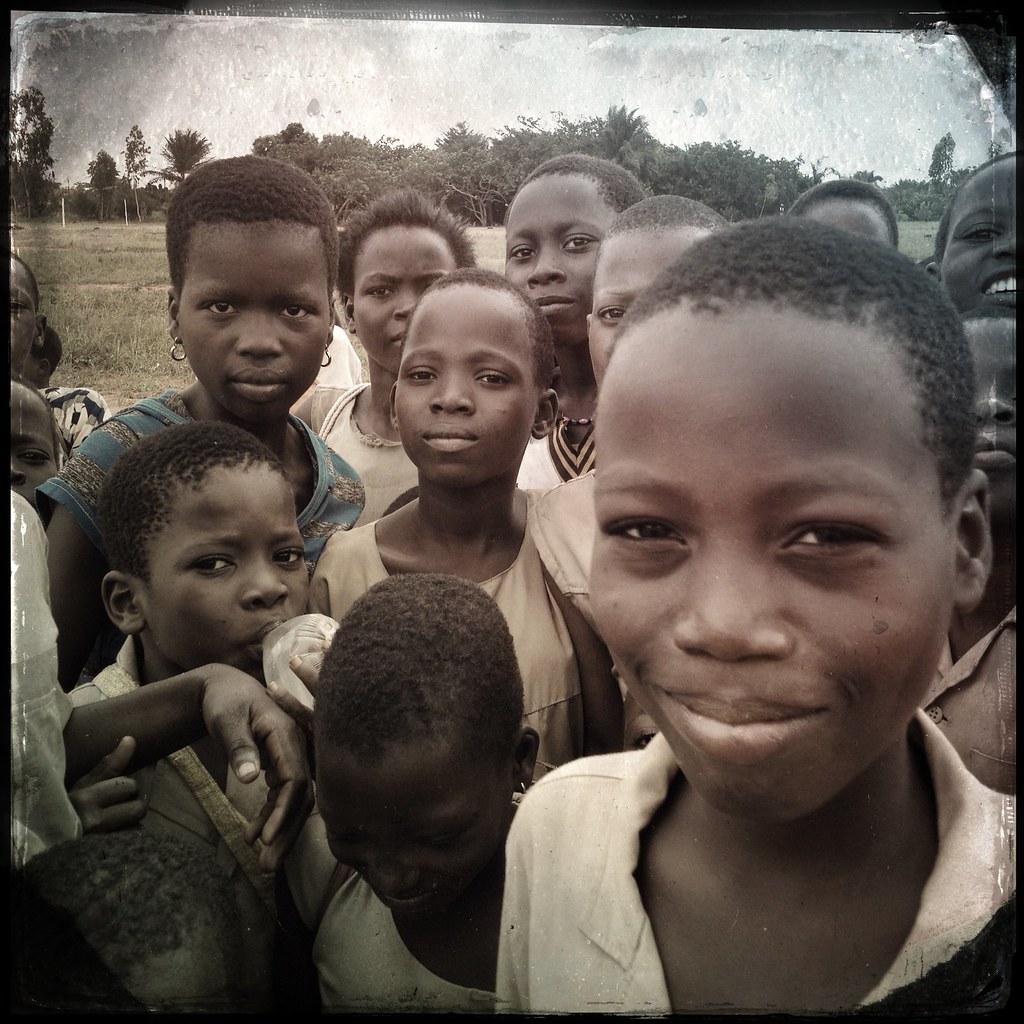
THANKS FOR READING!
And here are two other blog entries about this trip:
Tour of Ganvié
Initial Impressions of Togo

Post a Comment